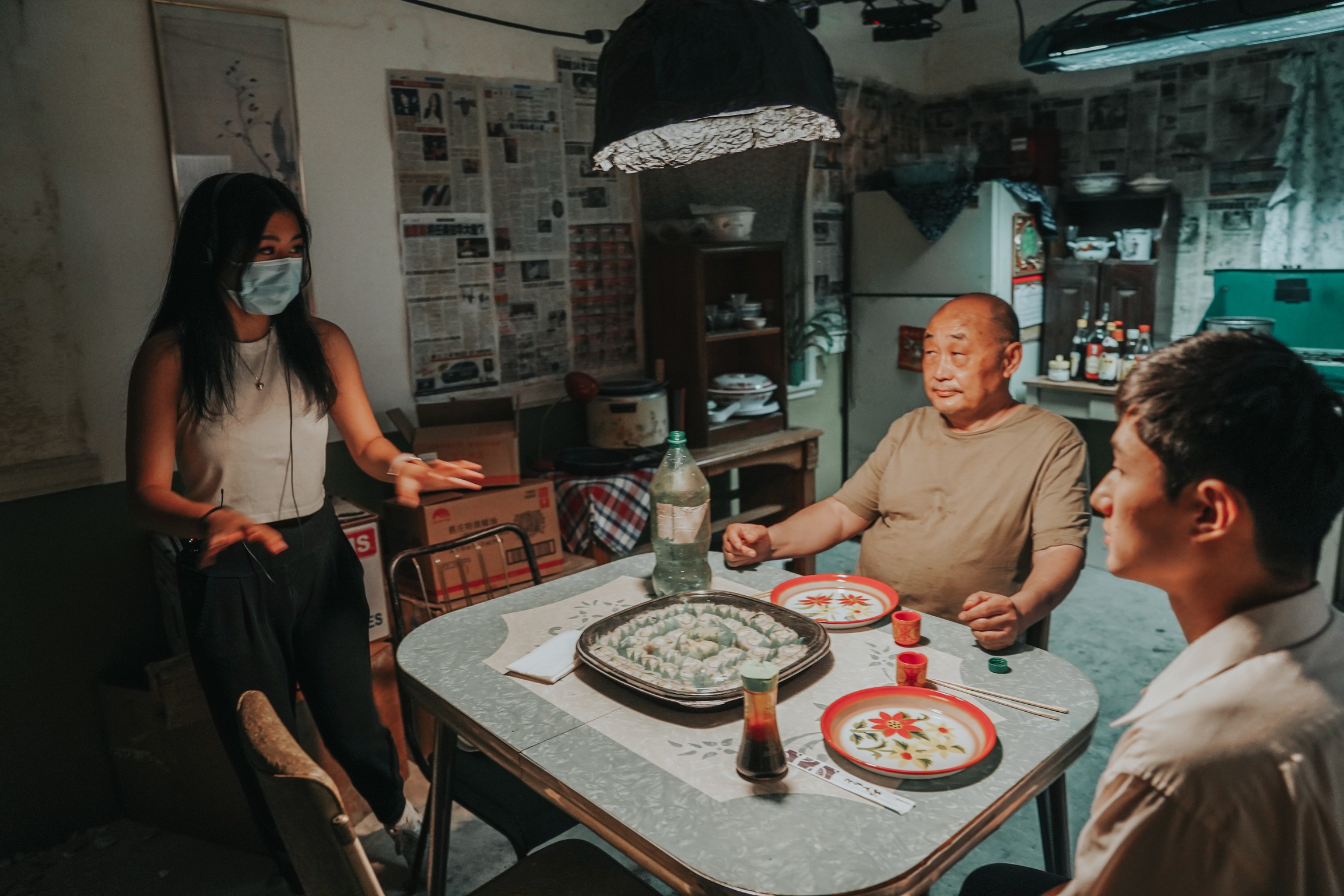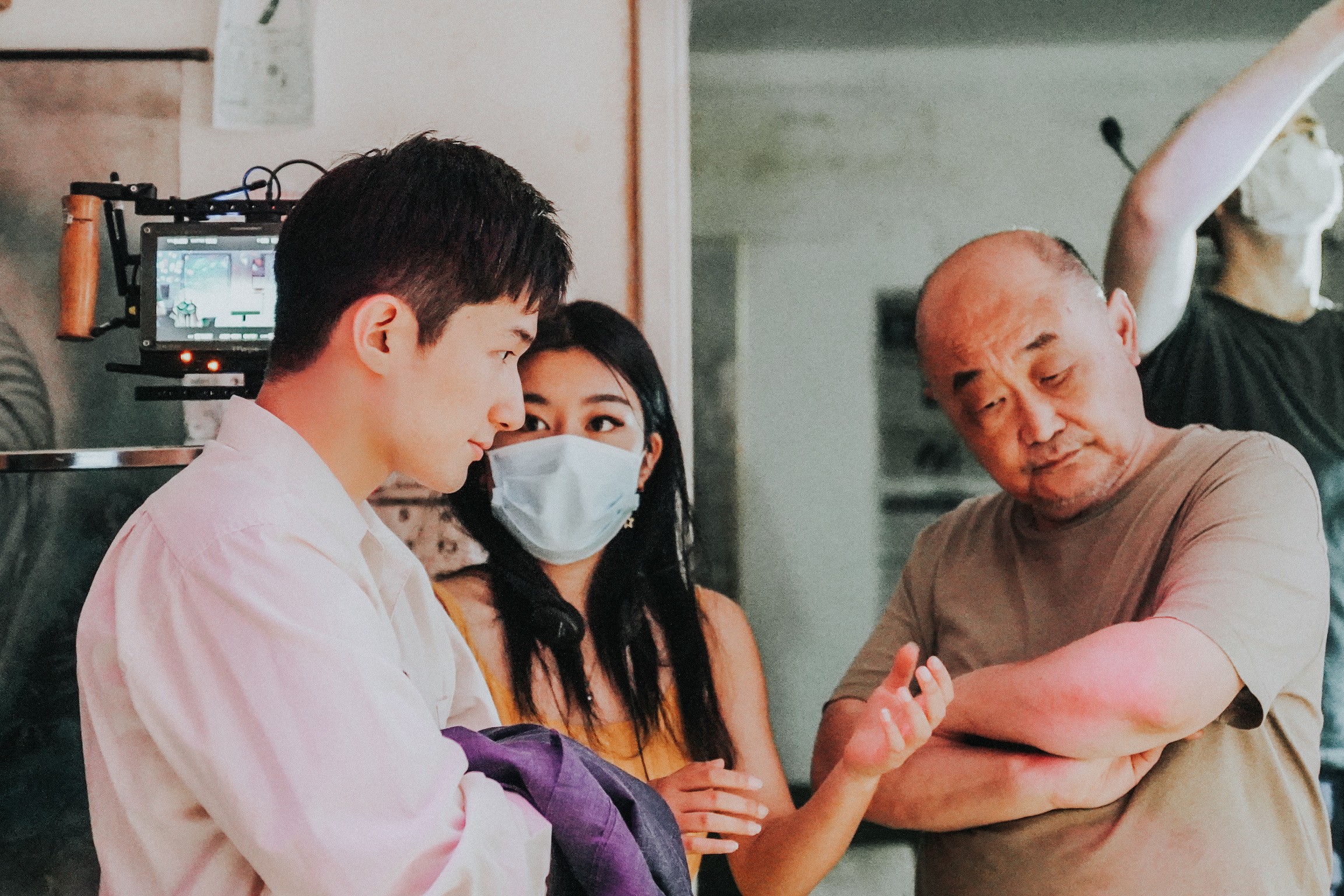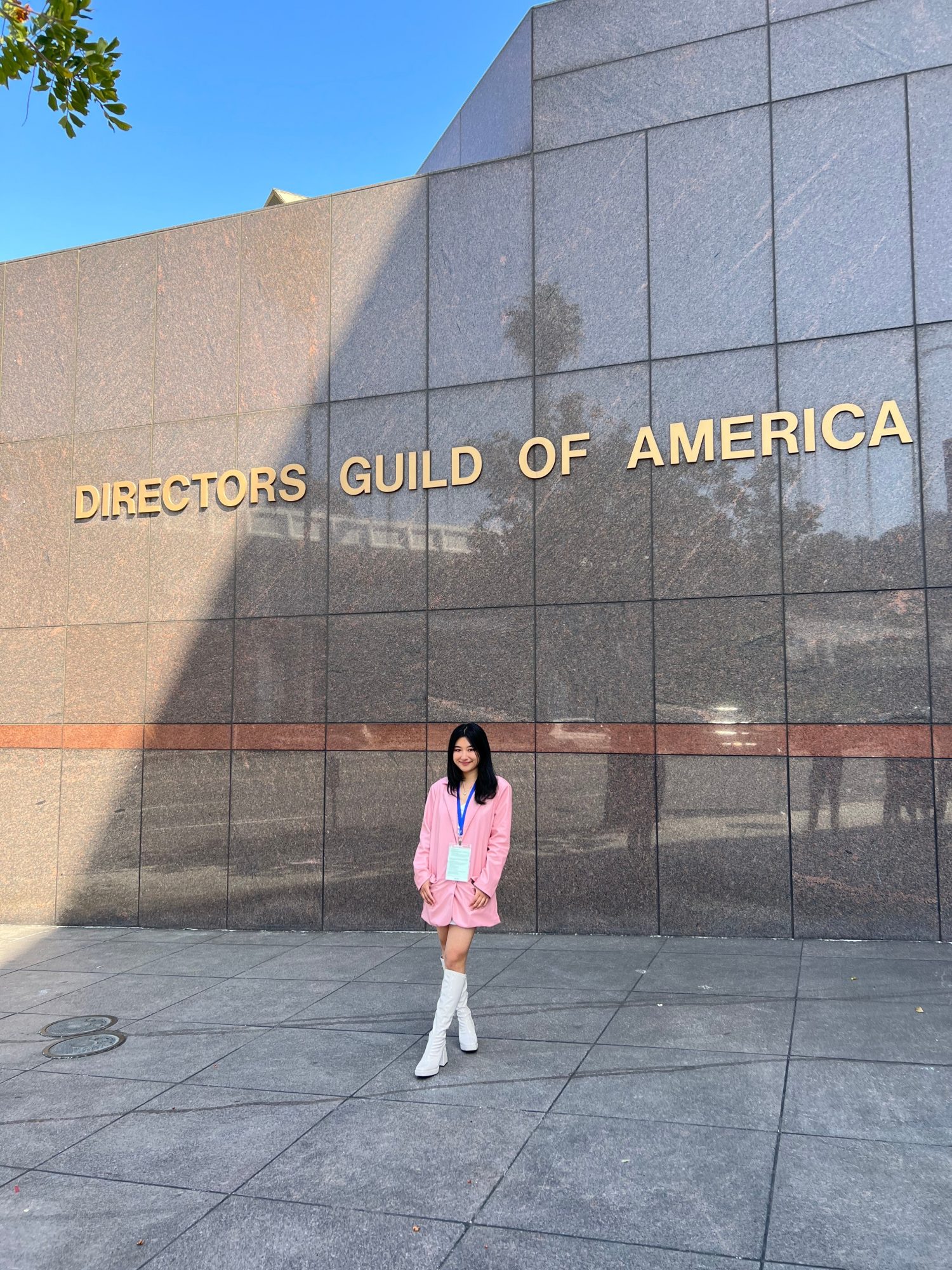

Today we’d like to introduce you to Kelly Yu.
Hi Kelly, so excited to have you with us today. What can you tell us about your story?
I’m a Chinese-American writer/director born in Sweden but raised in New Orleans. I grew up always feeling like I had a toe dipped in multiple cultures but nowhere to really call home. I think this is what drew me to the creative arts at a young age. I was classically trained in violin from the age of 5, and picked up piano and guitar as I got older. I always thought I was going to end up pursuing music as a career, but in high school, I picked up a camera for the first time and everything changed.
I don’t come from an arts background at all. My mom is an accountant and my dad is a scientist. As the child of Chinese immigrants, it was always expected of me to pursue a career in STEM. I remember my mom telling me that math and science was the only way to make money. I told her that I’d prove her wrong. So, armed with a camera and the filmmaking skills I learned from Youtube videos and high school elective classes, I started a freelance photo, video, and editing business when I was 15. Living in a small city like New Orleans allowed me to literally march up to a local business and ask them if they were looking for any creative work, whether it was photos for social media or videos for their website. I’ll never forget the first $40 I got paid for photography work. It was nothing, but for someone at that age, it felt like freedom. I kept doing it and eventually, started scaling up. I started shooting for national brands, fashion publications, social media influencers and throughout high school, and that became my job throughout high school and even now.
When it came to college choices, I found myself at a crossroads. I loved entrepreneurship and photography, but also writing, music, and storytelling. I didn’t want to give anything up if I only went to school for one of those things. But then it clicked — Filmmaking was the amalgamation of all of those art forms. So I applied to USC School of Cinematic Arts, got accepted, and moved to LA. During my freshman year, I wrote my first feature screenplay called “Plum Town.” It was based on my experience visiting my grandfather in the Chinese countryside and learning about his story of losing his farmland to urbanization. What started as just a writing exercise turned into something more when I realized this was also my chance to grapple with my heritage, identity, and the things I’ve always wanted to tell my parents. I put it on the Black List (a Hollywood screenplay review site) thinking no one would ever be interested in a Chinese-language indie story, but to my surprise, I got one of the highest scores on the site. That gave me the confidence to pursue writing/directing seriously, and a year later, shot the short film version of it that went on to win a bunch of jury awards at film festivals around the country. It attracted attention from industry members and got the attention of some managers, one of which I ended up signing with. Now, we’re working together to develop the material, with one being a feature film set in the U.S and Taiwan that I hope to make my feature directorial debut. It centers all around family, which is a theme that seeps its way into everything I write and make.
Can you talk to us a bit about the challenges and lessons you’ve learned along the way. Looking back would you say it’s been easy or smooth in retrospect?
Pursuing film has never been an easy road. It’s been riddled with self-doubt, insecurity, and constant comparison. When I made my first short film Plum Town, there was a lot of buzz around it. I think it’s because I launched a Kickstarter for it to raise the funds, and stirred up a lot of attention on social media and within my community. When we finished it and submitted it to festivals, I felt the pressure to live up to the support. To be worthy of the people who donated money and spread the word about the film. I wanted to the film to get into the most prestigious festivals. To get me into the labs and fellowships I’ve always wanted. And when that didn’t happen, I felt like I had failed everyone around me.
Now, looking back, I remind myself that despite the pressure and the opportunities I had, that short was only my first. It wasn’t supposed to win an Oscar, it was supposed to be my chance to learn, grow, and figure out my voice. My current self would have made a completely different short than the one I made two years ago, but that’s only because I learned a lot from the first one.
A lot of my filmmaking friends and I have recently gotten into hobbies like cooking, baking, and mixology. I just got an espresso machine and the art of dialing in the perfect espresso has been super time-consuming and tedious — but there was something so satisfying about putting in the work and seeing the perfect espresso come out. At first, I was wondering why my friends and I have been so into these hobbies, but then I realized — filmmaking is a long, tedious process that doesn’t yield instant results. It takes years and years. But cooking, and baking, espresso making… you put in a little bit of work and it yield instant results. It’s instant gratification. I think it’s healthy to have both. I used to immerse myself in a 24/7 film bubble, thinking I had to be writing every waking hour or I wasn’t contributing to my success. But now, I realize there’s so much more to life. The script will get written, the film will get made. But it would be such a shame if we missed out on the other joys of life while waiting.
Can you tell our readers more about what you do and what you think sets you apart from others?
I’m a narrative writer-director, meaning I write most of the material I make. While a lot of my inspiration comes from my experience growing up Chinese-American, I don’t consider myself an “Asian-American” filmmaker. Instead, I like to find inspiration from the absurdities of Asian culture and tell them through an “East-meets-West” lens. For example, Plum Town the feature is about feuding farming families in the countryside who have to learn to work together when a common enemy surfaces. I describe it like “Game of Thrones” meets Chinese farmers. While it’s inspired by my family’s true story, it also borrows from phenomenons happening all over China, such as viral live-streaming farmers who become millionaires off of vlogging their lives and doing comedic dances and skits. The Western lens comes via the protagonist, an Asian-American photographer who’s thrust in the middle of all the chaos when she arrives in China to visit her grandfather. This screenplay earned a “9” on the Black List and awarded me finalist in the Black List Lab and WGA Collyer Fellowship. But obviously, now I look back and think of a million ways it could be better.
I believe there’s a thin line between comedy and tragedy, and oftentimes the most poignant stories are ones with a comedic premise. My junior thesis film at USC was also inspired by a real-life story of a man who lives on a remote island in Hawaii and has dedicated his entire life to taking care of the last snail species on earth. I’m developing a feature off of this, which borrows that comedic, absurd premise but turns tragic when it starts to explore death, finality, and what it means to be the last of your kind.
So in short, I have this fascination with finding humanity in the absurd and the “weird.” Oftentimes they’re real stories about real people in this world that I read on news sites, Reddit, Twitter, etc.
Meanwhile, I’m still running that freelance photo/editing/video company I started in high school. It ranges from pitch design for filmmakers and studios all the way to creative support for brands and digital content creators. I grew up watching a lot of YouTube, and the creators I watched were what inspired me to pursue film. Now, I get to actually work with them. I help write, produce, film, and edit videos that reach an audience of over 20+ million. Again, instant gratification! Although it’s a vastly different medium than narrative film, it’s refreshing to work with creative people who don’t have to wait around for a studio to green-light the story they want to tell.
Are there any apps, books, podcasts, blogs or other resources you think our readers should check out?
The podcast “Scriptnotes” by John August and Craig Mazin has taught me more about screenwriting than film school.
A little controversial, but the A.I chatbot ChatGPT has become really useful for research and little administrative things that save time. Like I asked it to spit out some interview responses for VoyageLa in my exact voice and tone, and it did it instantly! Just kidding, I totally wrote all this myself. But it’s been interesting bouncing ideas off of it and seeing what comes out of it.
Contact Info:
- Website: www.itskellyyu.com
- Instagram: www.instagram.com/itskellyyu
- Twitter: www.twitter.com/itskellyyu







 Image Credits
Image Credits
Lauren Allen, Graham Byers, Thomas Kim











